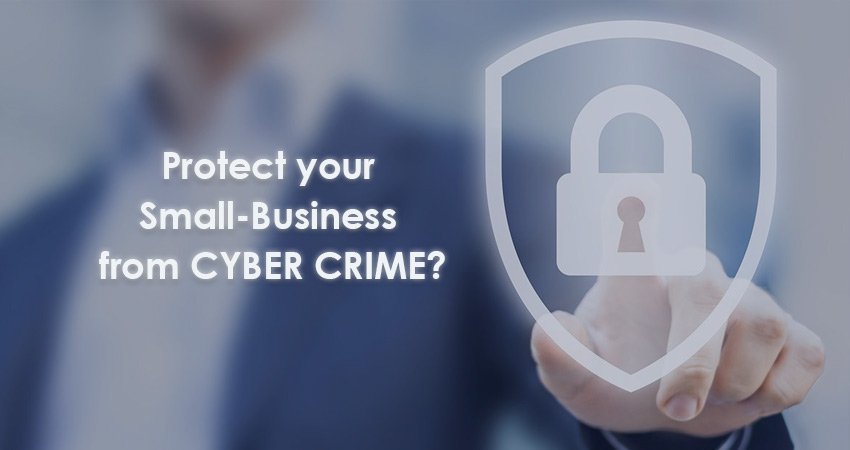In today’s modernera, technology and innovation is advancing at breakneck speed. But with these digital innovations, comes the large element of risk as cybercriminals are using it as a gateway to accessing sensitive business data and stealing money. In fact, by 2021, it has been predicted that cybercrime will cost the world a whopping$6 trillion annually.
It could be said that today’s businesses have less reason to fear burglars breaking an entry than anonymous cybercriminals accessing their network. These individuals are becoming more and more advanced in their behaviours, causing overwhelming levels of harm to the largest of global conglomerates to the smallest of boutique shops… and this shows no signs of slowing down.
In fact, it’s very often smaller businesses who are targeted by cybercriminals, with 63 percent of small businesses reporting being a victim of cybercrime in 2018.
Why? Smaller businesses are very often “easy targets” due to there being a less likely chance that they have employed security services partner like engagecybersecurity.com to protect themselves, often believing they are “too small” to be targeted.
So, what can you do as a small business to avoid being targeted by cybercriminals? Take a look at these tips on how to improve security in the digital age.
- Educate and train your employees
Did you know that over 95 percent of security breaches happen, not due to cybercriminals hacking into your firewall, but because an employee has unknowingly opened a door and welcomed them in.
Human error is the leading cause for cyberattacks for many reasons. This includes:weak passwords, falling victim to phishing emails, leaving sensitive documents unattended on desks and much more.
Investing in the latest, cutting-edge security software without educating and training your employees on the importance of cybersecurity protocols is very much like putting up a security fence around your home but leaving the gate wide open.
Make training a priority.
- Manage user privileges
Another key step in protecting your business from cyberattacks is to consider the rights and privileges given to each user. As a business owner, you should ensure higher-level system privileges are only given to those employees who need it. Loss of control and poor management of such privileges can often open areas of vulnerability.
For some user accounts, you may wish to consider applying additional security through a two-factor authentication. Fingerprint readers and other biometric authentication technology are becoming an increasingly popular wayto secure devices and heighten protection.
- Ensure all devices are updated and compliant
One of the most common ways cybercriminals gain access to a network is via code defects, otherwise known as exploits. Such exploits can go unnoticed for years before they are fixed, and if you aren’t updating your software regularly, then you are leaving open an opportunity for anyone with even the most limited of technical knowledge to exploit.
One of the most well-known examples of the colossal impact of not updating devices is the WannaCry ransomware attack of 2018, which cost the NHS over £90 million and disrupted care across the UK. At the time of the attacks, the NHS was criticised for using outdated IT systems that left them vulnerable to cyber-attacks.
To protect yourself against such attacks, you must regularly update all devices including desktop commuters, laptops, and mobile devices. Ask yourself, is my operating system and security software updated to the latest version possible? Many of the latest software gives you the option to update automatically and this can be done outside business hours to minimise any disruption caused.
As well as the above devices, you must ensure your card readers and payment devices also adhere to the highest industry standards. Payment solutions such as those provided by UTP Group, for example, are fully compliant to the PCI DSS (Payment Card Industry Data Security Standard) and encrypted by servers of the strictest standards to ensure your customers’ sensitive data is never compromised.With more customers choosing to pay digitally due to concerns over the transmission of COVID via cash, ensuring your card machines are fitted with the latest security technology is vital.
- Invest in a reliable VPN
A VPN (Virtual Private Network) creates a secure connection over a less secure network, between your devices and the internet. In today’s modern era, in which employees often use their own mobile or laptop to access their work server, installing a VPN can help to make a network significantly more secure. This is particularly useful for the many employees who use public WiFi to work in places such as coffee shops.
Final remarks
Cyberattacks can have detrimental impacts on businesses of all sizes and while you cannot stop cybercrime, you can take the right measures to protect yourself and help minimise the risk. It’s time to stop leaving cybersecurity as an afterthought and follow the outlined protocols to ensure your business is as protected as it can be. Combining common sense with good security practices will help evade attacks on your business and dramatically improve your protection.
